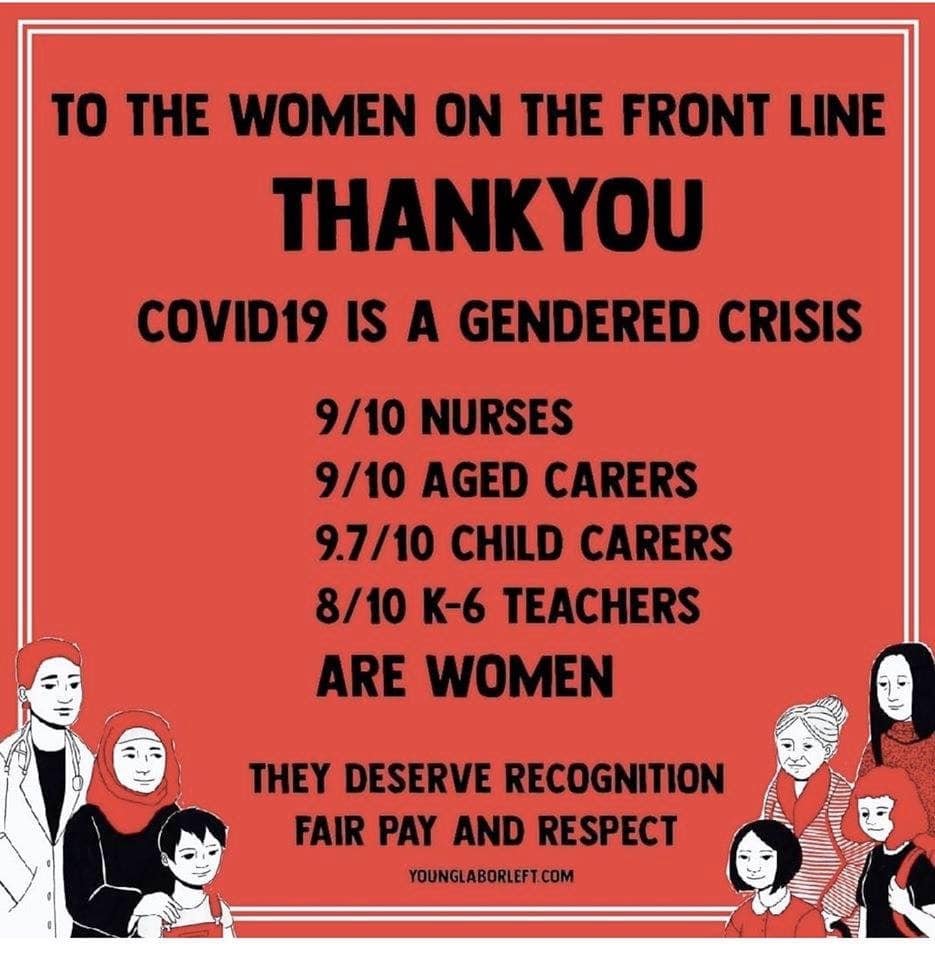In the face of the ongoing pandemic, there are so many ways to support one another. Across the country, we’re joining together to envision and collectively build and sustain a beloved community that mirrors values often ignored in our day-to-day lives. To navigate these hard times, the Sierra Club’s Gender Program has pulled together some resources and information to understand how this crisis is connected to our broader work toward justice for both people and the planet
For decades, leaders from movements for racial justice, disability justice, immigration justice, labor, and Indigenous rights have fought against the many inequalities that are making our response to COVID-19 slower and more dangerous than it could be. We are personally affected by the grocery clerk’s inability to stay home when they are sick, the low wages and precarious labor of house cleaners, child and eldercare providers. As thousands of people are laid off, we see the drawbacks of the uniquely American policy that ties our health-care services to employment. Additionally, we already know that women make up the majority of low and unpaid labor and will be bearing the brunt of the chaos left behind by COVID-19.
We continue to be activists while concurrently playing new roles of educator, tech support, and nurse to our extended networks of family and friends. We will only get through this crisis with the power of our communities and forceful convictions that addressing the pandemic can create a more just society for us all (grace, humor, chocolate, and pet memes are also essential!).
While this crisis may feel too large for any one person to tackle, each day we have the ability to support our communities by our immediate actions as small as washing our hands or as big as coordinating a network of mutual aid in our neighborhood. Activists are pushing new policies to support the many who have lost their livelihoods and health to this virus. While these alone will not solve all of our problems, we have the unique opportunity to re-envision what our world functionally looks like.
Naming and addressing the gendered impacts of the coronavirus

As we identify the many ways that COVID-19 brings to light differences in response and impact dynamics, we note that, according to the current data, coronavirus mortality rates are much higher in men than women. The LA Times breaks down both gender- and sex-based dynamics at play here.
Women are more likely to take on unpaid work such as caring for family members and community. They are also more likely to hold jobs in frontline medical care like nursing and hospice, education, childcare, and elder care. These and other highly gendered underpaid, hourly jobs like house cleaning, are more precarious with less paid leave when the worker or one of their loved ones is ill. Half of all single moms make less than $37,000 per year. In times of increased precarity, single-income households are also in danger of losing that income source. With the unemployment rate in the US skyrocketing because of COVID-19, we know that those already facing economic burdens will be the ones most harmed.
Here are a couple of good articles about how these dynamics play out in the social responses to the novel coronavirus. However, neither explicitly addresses the compounding stresses of being a woman of color, unhoused, undocumented, or living with a chronic illness or disability during these unsettling times. Access to family planning, abortion services, and protection for victims of gender-based violence are also critical during times of social upheaval. (Here is a comprehensive list of services for people affected by domestic violence).
We are committed to policies that address these inequities, which is why you’ll find the Sierra Club and our allies calling for essential safety net services like paid sick and family leave, childcare for frontline workers, a moratorium on evictions and foreclosures, restoring running water to low income families, and unemployment in our work for a #peoplesbailout.
Like many crises, the impacts are being felt differently by various communities. As coronavirus accelerates in the United States, there are growing concerns that black communities, particularly black women, are not being granted access to testing in addition to already being exposed to systemic hazards to community and personal health that are products of racism. In a country where black women are already not taken seriously for their symptoms, this is particularly concerning.
In this time of uncertainty, the Gender Program is grateful to be a part of the Sierra Club community who continue to fight for our rights to clean air, clean water, and a livable planet for all people. We also know that hope, community care, and collective action will build a world that is resilient in the face of these challenging times and strengthen our movement for the path ahead.